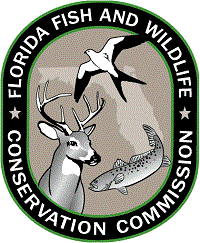Florida 2013 Limited Harvest Starts Sept. 1 for Snook

The recreational harvest season for Florida’s premier game fish, snook, opens Sept. 1 statewide. Unique to the region, snook are one of the many reasons Florida is the Fishing Capital of the World.
While the fishery is more than 90 percent catch-and-release, the FWC encourages anglers to use moderation when determining whether or not to take a snook home. Gulf snook populations were negatively impacted by a 2010 cold kill. Gulf snook numbers currently exceed FWC’s management goals but are still rebuilding to pre-cold-kill levels, which is one of the reasons why it is important to handle fish with care in this region and use moderation when determining whether or not to harvest one.
When releasing a snook, proper handling methods can help ensure the species’ abundance for anglers today and generations to come. To learn more about catch-and-release, the best way to handle a fish, visit MyFWC.com/Fishing and click on “Saltwater” then “Recreational Regulations.”
Regular season closures designed to help protect the species during vulnerable times such as cold weather begin Dec. 1 in Gulf state and federal waters, including Monroe County and Everglades National Park, and Dec. 15 in Atlantic state and federal waters, including Lake Okeechobee and the Kissimmee River.
Management measures such as the one-fish-per-person, per-day bag limit, annual closed seasons and size limits will help continue rebuilding snook populations on both coasts.
Minimum and maximum size limits help protect juvenile and older breeding fish within the population. In the Atlantic, snook must be not less than 28 inches and not more than 32 inches total length, which is measured from the most forward point of the head with the mouth closed to the farthest tip of the tail with the tail compressed or squeezed while the fish is lying on its side. In the Gulf, they must be not less than 28 inches and not more than 33 inches total length.
A snook permit as well as a recreational saltwater license is required unless the angler is exempt from having a license. Snagging and spearing snook is prohibited.
It is illegal to buy or sell snook.
Anglers can report their catch on the Snook and Gamefish Foundation’s website at Snookfoundation.org by clicking on the Angler Action link. Researchers also ask anglers who harvest the fish to save their filleted carcasses and provide them to the FWC by dropping them off at a participating bait and tackle store. For the county-by-county list, go to MyFWC.com/Research and click on “Saltwater,” “Saltwater Fish,” “Snook,” and “Snook Anglers Asked to Help with Research.”
These carcasses provide biological data, including the size, age, maturity and sex of the catch. This information is important to the FWC in completing stock assessments on species such as snook. If you see a snook fishery violation, please call the Wildlife Alert Program at 888-404-FWCC (3922).
Visit MyFWC.com/Fishing and click on “Saltwater Fishing” and “Recreational Regulations” for more information on snook.

